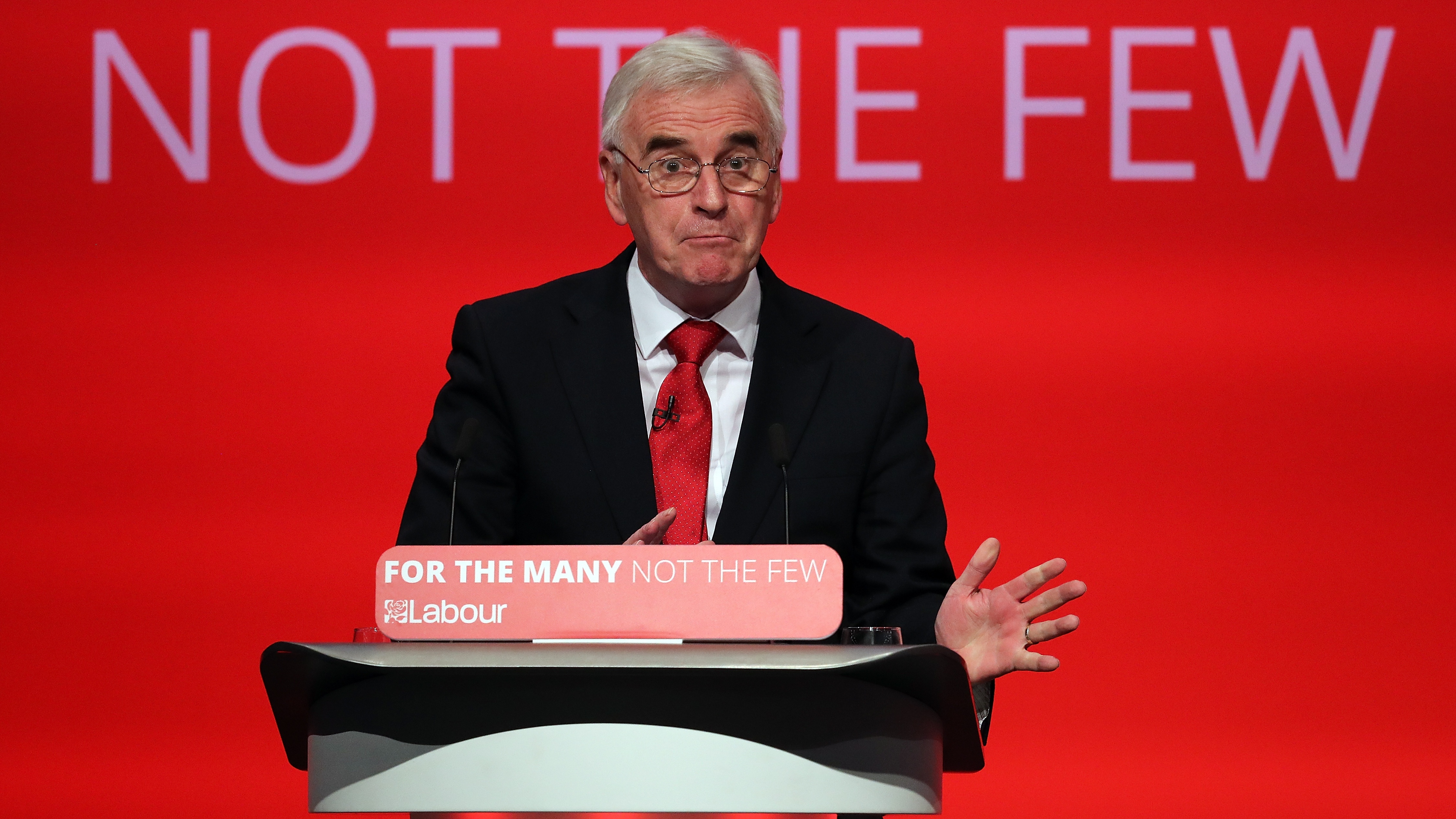General election 2019 latest: Labour government ‘would save families £6,700 a year’
The Week’s daily round-up of how the election campaign is unfolding

A free daily email with the biggest news stories of the day – and the best features from TheWeek.com
You are now subscribed
Your newsletter sign-up was successful
With just over a week to go until the general election, Labour is making a last-ditch bid to win votes by claiming that the party’s policies would save families an average total of £6,700 a year.
In a speech today, shadow chancellor John McDonnell will say that households would save cash as a result of the nationalisation of public services; reductions in the cost of rail season tickets; free childcare and school meals; and the axing of prescription charges.
The renewed focus on the cost of living and the total touted saving for families reportedly comes in response to concerns that the key messages in the party’s manifesto are getting lost.
The Week
Escape your echo chamber. Get the facts behind the news, plus analysis from multiple perspectives.

Sign up for The Week's Free Newsletters
From our morning news briefing to a weekly Good News Newsletter, get the best of The Week delivered directly to your inbox.
From our morning news briefing to a weekly Good News Newsletter, get the best of The Week delivered directly to your inbox.
“The manifesto is good – it’s just long and confusing. You need a few targeted, short messages and keep repeating them,” an unnamed Labour candidate in a Leave-voting seat told The Guardian.
In other news, Boris Johnson met with Donald Trump at No. 10 last night, where the two “discussed the future of Nato, what is going on in Syria and various other matters”, according to the prime minister.
Meanwhile, Jeremy Corbyn has apologised for alleged anti-Semitism within Labour, telling ITV’s This Morning that “our party and me do not accept anti-Semitism in any form” and that he is “sorry for everything that’s happened”.
The latest polls show the Tories on top but with Labour gaining. A Sky News/YouGov poll puts the Tories on 42% and Labour on 33%.
A free daily email with the biggest news stories of the day – and the best features from TheWeek.com
As campaigning reaches its peak, all of the parties have been warned over sending out election leaflets that mimic local newspapers. Industry group the Society of Editors said that doing so could undermine the public’s trust in local press and that voters wouldn’t forgive politicians who “attempt to take them for mugs”.
The Liberal Democrats have suffered a further image blow as leader Jo Swinson suspends a party member for faking an email that was sent as part of a legal battle with the openDemocracy political website. The row relates to a story about the Lib Dems selling personal data - something the party denies.
Swinson’s party has also come in for criticism over a leaflet with advice from a “polling expert” urging locals to vote tactically for the Lib Dems, with just a small disclaimer that the correspondence was from the party.
-
 ‘Poor time management isn’t just an inconvenience’
‘Poor time management isn’t just an inconvenience’Instant Opinion Opinion, comment and editorials of the day
-
 Bad Bunny’s Super Bowl: A win for unity
Bad Bunny’s Super Bowl: A win for unityFeature The global superstar's halftime show was a celebration for everyone to enjoy
-
 Book reviews: ‘Bonfire of the Murdochs’ and ‘The Typewriter and the Guillotine’
Book reviews: ‘Bonfire of the Murdochs’ and ‘The Typewriter and the Guillotine’Feature New insights into the Murdoch family’s turmoil and a renowned journalist’s time in pre-World War II Paris
-
 How corrupt is the UK?
How corrupt is the UK?The Explainer Decline in standards ‘risks becoming a defining feature of our political culture’ as Britain falls to lowest ever score on global index
-
 Reforming the House of Lords
Reforming the House of LordsThe Explainer Keir Starmer’s government regards reform of the House of Lords as ‘long overdue and essential’
-
 How long can Keir Starmer last as Labour leader?
How long can Keir Starmer last as Labour leader?Today's Big Question Pathway to a coup ‘still unclear’ even as potential challengers begin manoeuvring into position
-
 The high street: Britain’s next political battleground?
The high street: Britain’s next political battleground?In the Spotlight Mass closure of shops and influx of organised crime are fuelling voter anger, and offer an opening for Reform UK
-
 Is a Reform-Tory pact becoming more likely?
Is a Reform-Tory pact becoming more likely?Today’s Big Question Nigel Farage’s party is ahead in the polls but still falls well short of a Commons majority, while Conservatives are still losing MPs to Reform
-
 The launch of Your Party: how it could work
The launch of Your Party: how it could workThe Explainer Despite landmark decisions made over the party’s makeup at their first conference, core frustrations are ‘likely to only intensify in the near-future’
-
 What does the fall in net migration mean for the UK?
What does the fall in net migration mean for the UK?Today’s Big Question With Labour and the Tories trying to ‘claim credit’ for lower figures, the ‘underlying picture is far less clear-cut’
-
 Asylum hotels: everything you need to know
Asylum hotels: everything you need to knowThe Explainer Using hotels to house asylum seekers has proved extremely unpopular. Why, and what can the government do about it?